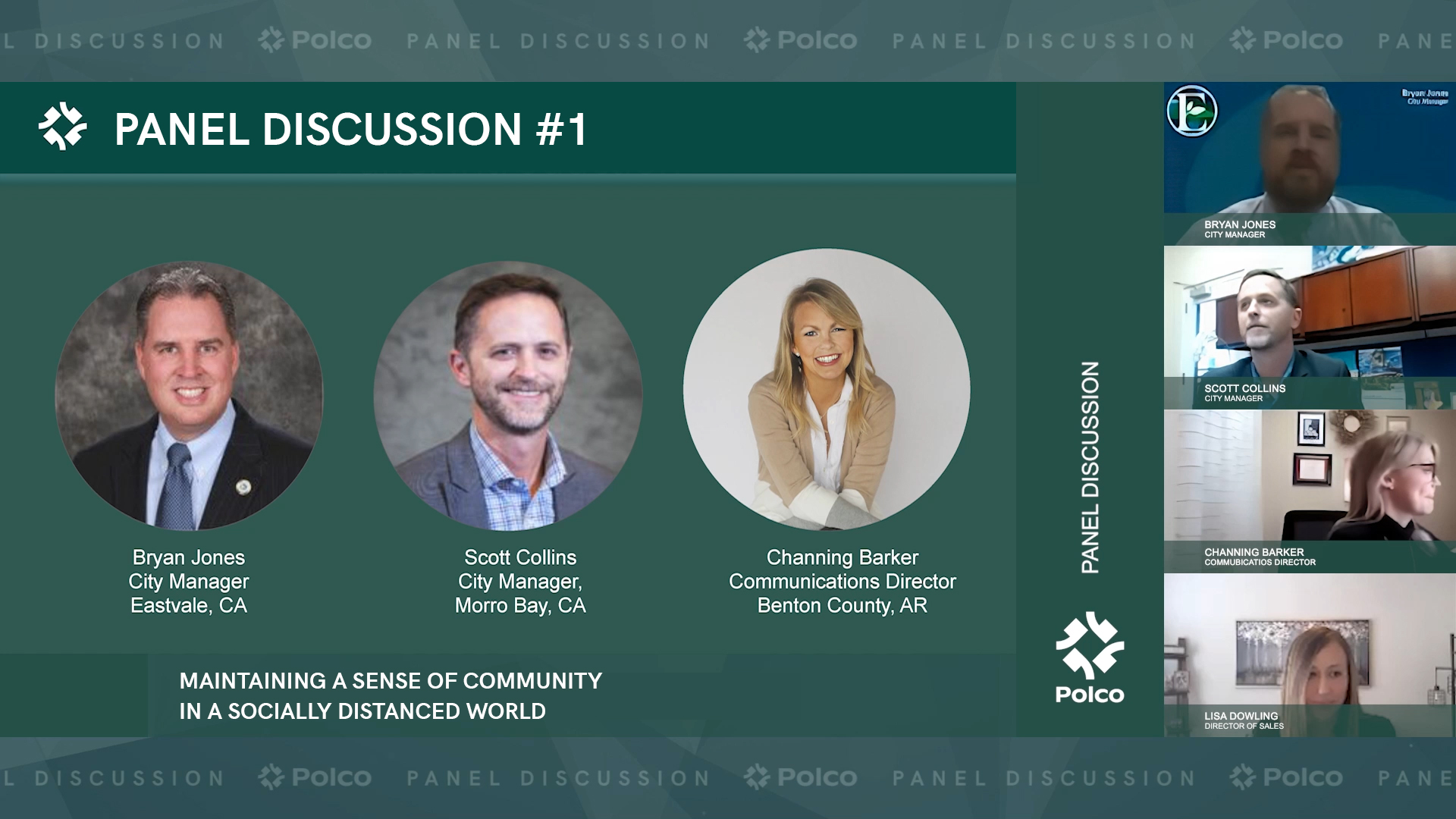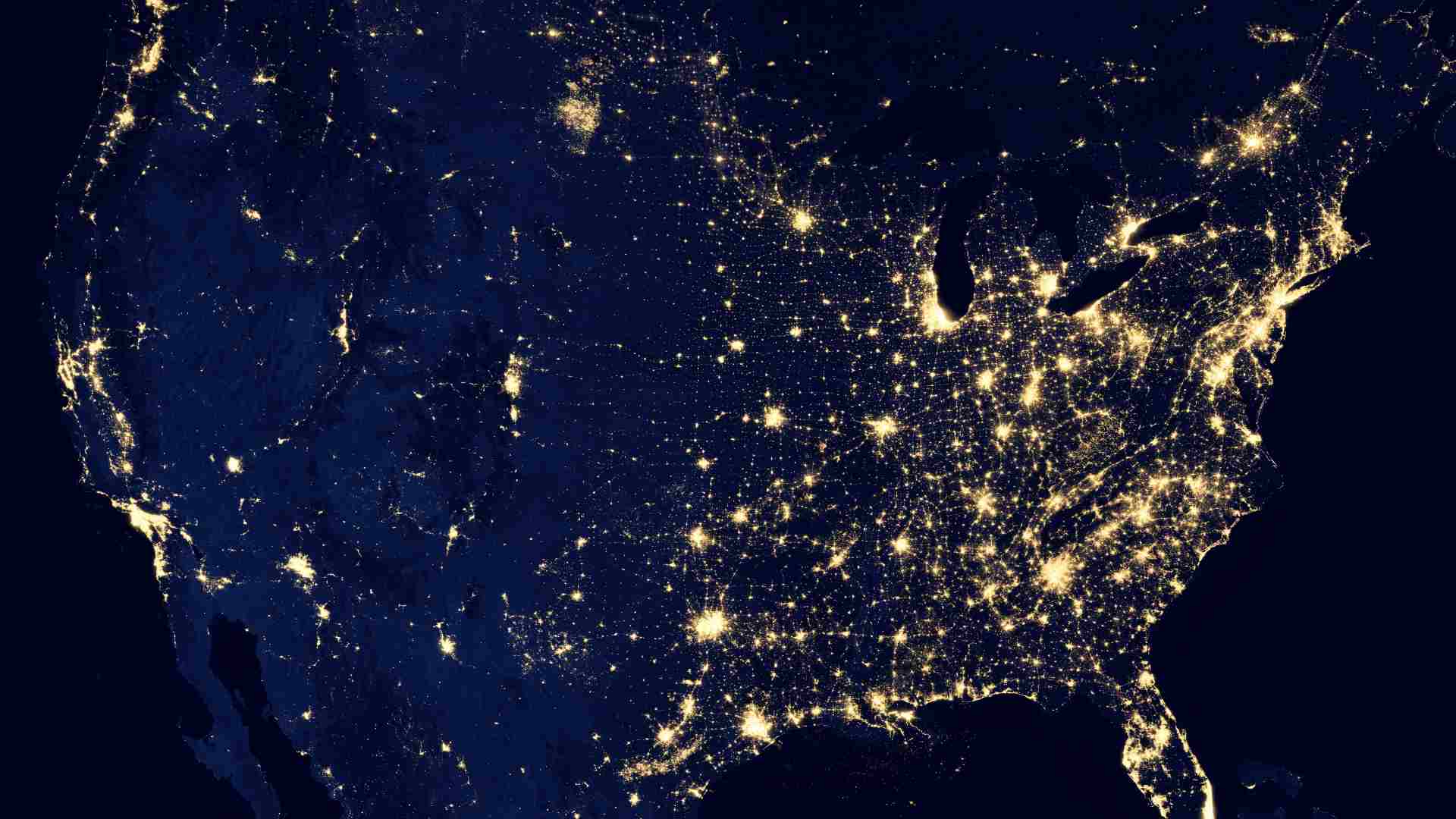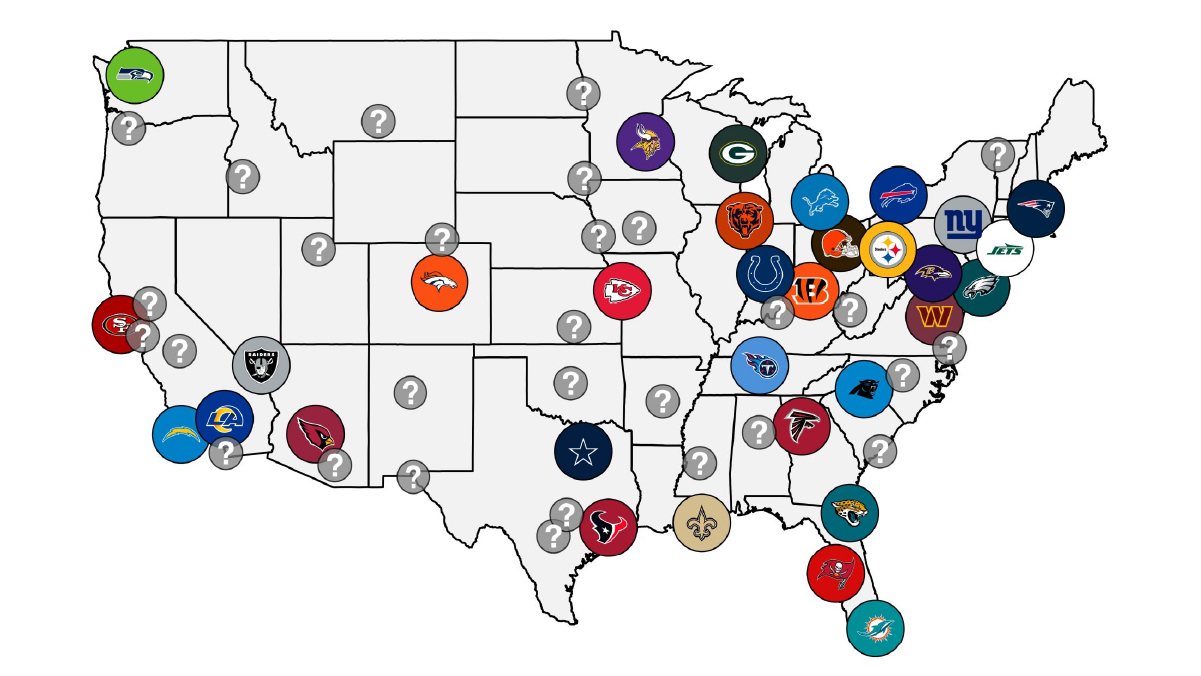Deepening Local Government Community Engagement in a Socially-Distanced World
By Polco on December 10, 2020

-Panel Discussion Video with Lisa Dowling-
Even prior to COVID-19, only about 20% of US residents say they have ever attended a local government meeting. When the pandemic came, in-person meetings have only become even more inaccessible for most people. Plus, many people are trying to balance work responsibilities with schooling children at home. The last thing from their mind may be what their local government is doing.
At the same time, local governments have never dealt with a pandemic before. Circumstances are constantly shifting. Leaders need feedback from residents in real time to best move their community forward. So how do local governments better deepen community engagement even in this socially-distanced world?
In this Panel Discussion, City Managers Bryan Jones (Eastvale, California) and Scott Collins (Morro Bay, California) and Communications Director Channing Barker (Benton County, Arkansas) share how they are engaging residents even in today’s world.
An Evolving Community Engagement Strategy
Community engagement is a priority for all three communities.
“Our residents’ success is our success. If we’re not engaging with them, we’re not successful in serving them,” said Jones. “We saw a lot of governments hunker down and put their head in the sand and hope this was going to go away. Others said, how do we adapt and overcome this?”
All three leaders have tenaciously adapted their engagement strategy since the beginning of the pandemic. They have had to use different types of communication tools, developed campaigns for encouraging positive community interactions, and encouraged key collaborations.
They have found that during the pandemic, certain communication tools work better than others. They find success with short videos and communication channels such as Tiktok and NextDoor to reach residents. Benton County still tries to find opportunities for safe, in-person connections such as having County Government staff man outdoor ballot drop off sites.
“Finding ways to humanize county government has been one of my big goals. By still finding safe in-person opportunities for people to connect with County government staff, people can better realize the role the government plays,” said Barker.
Another goal for the leaders is to support their residents to help each other out. For example, Morro Bay has a Cares Program that matches volunteers with other vulnerable residents. The volunteer shops for groceries for their vulnerable neighbor and does frequent phone call check ins. Morro Bay also has a program to honor businesses who go above and beyond to maintain a safe environment for customers and employees.
Last, these local government leaders nurture key partnerships. For example, Eastvale, California convenes a task force of law enforcement professionals and residents related to the Black Lives Matter movement. As another example, Morro Bay convenes the Chamber of Commerce with the County and local businesses in order to help the business community be on the same page.
Tools for Measuring Resident Feedback
Each of the communities uses tools intentionally to measure their residents’ feedback. This helps each community to make more informed decisions.
“Engagement keeps us clued into the needs, desires, values of residents and businesses so they feel supported,”said Collins. “If we don’t have those connection points, then we are flying blind.”
Benton County uses texting to measure resident feedback. They also track how many people show up for voting or COVID-19 testing after various campaigns. They have an intern who measures analytics from texting, social media, and resident participation.
Morro Bay has had to be creative in coming up with efficient ways to measure resident feedback since budget cuts forced them to lay off employees. They use the civic engagement platform Polco to send polls to residents. They also rely on connections to influential community groups such as The Chamber of Commerce, churches, and non-profits to understand more about how their residents are doing.
“COVID-19 has provided a platform for local government to show its true value. The only way to show our value has been to be out front and see what our residents need and then deliver on those needs,” said Collins.
Related Articles
- Three Ways Local Governments Can Build a Culture of Community Engagement
- How Can Local Governments Continue Engagement in Today's New World?
- Resident feedback guides Bloomington to address COVID-19 budget impacts, saving $390,000
Popular posts
Sign-up for Updates
You May Also Like
These Related Stories

How Leaders from Very Different Communities Connect with Residents in a Socially-Distanced World

Big Data for Small Community Decisions

